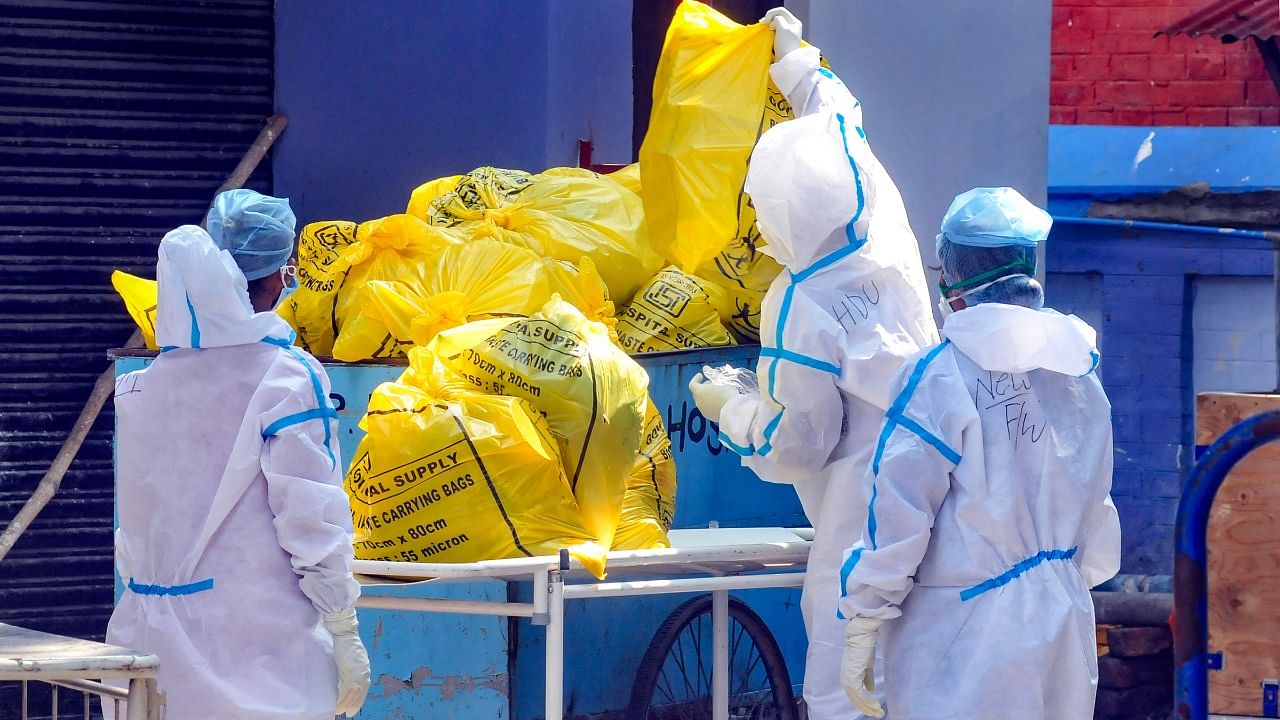
Over two lakh kilograms of biomedical waste was generated each day last month by hospitals in India dealing with Covid-19 patients, a new report revealed on Friday.
The report titled 'State of India's Environment 2021', released by the Centre for Science and Environment, said 2,03,000 kg of Covid-19 biomedical waste was produced daily in May this year and it was roughly 33 per cent of India's non-Covid biomedical waste.
It said the Covid-19 biomedical waste generated per day in May was 46 per cent more than in April when 1.39 lakh kg of such waste was produced daily. In March, the daily figure was 75,000 kg, according to the report.
April and May witnessed a deadly second wave of coronavirus cases that swept through the country stretching the healthcare infrastructure to its limits.
The report by the Centre for Science and Environment found that Kerala, Gujarat, Maharashtra, Delhi and Karnataka contributed 50 per cent of Covid-19 biomedical waste generated in May.
All these states were hit particularly hard by the second wave of the Covid-19 contagion.
The report also said the biomedical waste generated per day in 2017 was 5.59 lakh kg and the quantity of waste treated daily was 519 kg. In 2019, 6.19 lakh kg biomedical waste was generated and 545 kg was treated daily.
India still disposes of 12 per cent of its hospital waste without any treatment with Bihar and Karnataka faring the worst, it said.
"In 2019, India treated 88 per cent of its biomedical waste, down from 92.8 per cent in 2017,” the report authored by Kiran Pandey and Rajit Sengupta, said.
Biomedical waste includes cultures, stocks of infectious agents, associated biologicals, human blood and blood products, contaminated sharps, amputated body parts and isolation waste.
Although it is a small proportion of the total waste generated (around 1 per cent), it needs special handling due to its highly toxic contents that can pose a severe threat to human health, the report said.